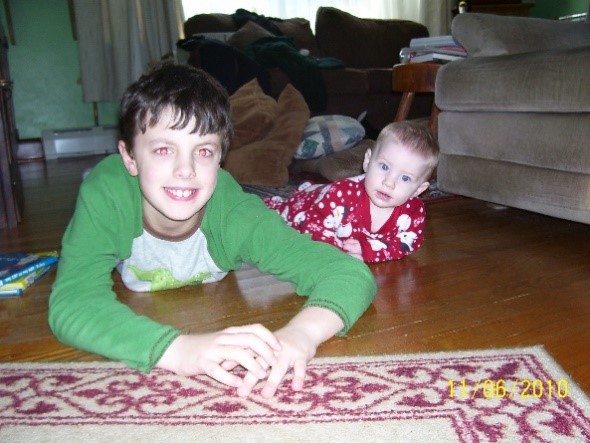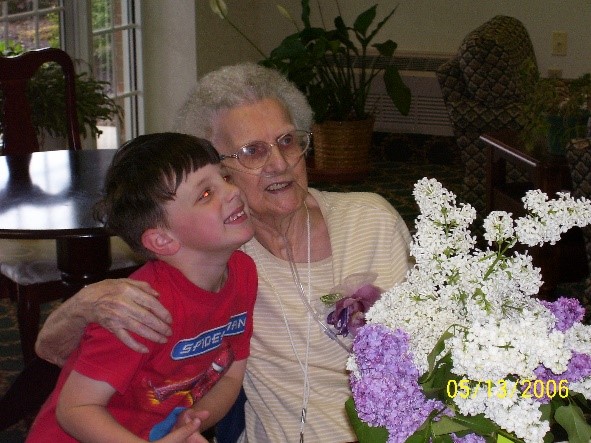Lifespan Development Concentration



LIFESPAN DEVELOPMENT CONCENTRATION
27 Credits
This program offers all students, especially those majoring in the behavioral and social sciences, the opportunity to develop a multidisciplinary focus in human development. The academic aims of the concentration are to provide an understanding of:
- Both normal and exceptional development of humans as biological and psychological organisms;
- The relationship between individuals and family/social environment; and
- The means to enhance human development, including a field experience in a human-development agency.
The 27-credit Lifespan Development concentration is administered by an interdisciplinary board of faculty from the Psychology, Sociology, and Counseling and Human Services departments. Students interested in careers and graduate programs in human development should contact the director for more information on course choice and on integrating the concentration with various majors. Students who complete this concentration will have it noted on their transcripts.
1. PSYC 226 (Lifespan Development: Cognitive and Biological)
2. PSYC 227 (Lifespan Development: Social and Emotional)
3. PSYC 225 (Abnormal Psychology)
4. One of the following courses:
PSYC 360 (Clinical Psychology)
CHS 242 (Counseling Theories)
SOC 115 (Introduction to Social Work)
HADM 110 (Introduction to Gerontology)
HADM 211 (Health Administration)
OT 440 (Management and Supervision of Occupational Services)
NURS 472 (Advanced Nursing Concepts)
5. One of the following in the Human Biology group:
BIOL 100 (Modern Concepts of Human Biology)
BIOL 104 (Anatomy, Physiology, and Health)
BIOL 110 (Human Anatomy & Physiology) + Lab required also
BIOL 142 (General Biology) + Lab required also
BIOL 202 (ABC’s of Genetics)
BIOL 205 (Human Sexuality & Reproduction)
PSYC/NEUR 231 (Behavioral Neuroscience)
6. One of the following in the Cultural Diversity group:
CHS 333 (Multiculturalism in Counseling and Human Services)
CHS 337 (Counseling Girls and Women)
CHS 338 (Poverty, Homelessness, and Social Justice)
CHS 339 (Counseling Boys and Men)
CHS 375 (Counseling LGBT Persons)
EDUC 142 (Exceptional Lives)
EDUC 256 (Family, School & Community Relations in a Diverse Society)
HADM 216 (Aging & the Community)
HADM 218 (Health & Aging)
HADM 232 (Aging & Death)
HADM 315 (Cultural Diversity and Health Administration)
PSYC 237 (Psychology of Women)
PSYC/HD 325 (Abnormal Child)
PSYC 364 (Psychology of Diversity)
SOC 210 (Marriage and Family)
SOC 220 (Social Stratification)
SOC 224 (Race and Ethnic Relations)
SOC 234 (Cultural Anthropology)
SOC 315 (Feminism and Social Change)
7 & 8. Two of the following in the Applied Skills group:
CHS 241 (Case Management)
CHS 322 (Cognitive Disabilities)
CHS 325 (Psychosocial Aspects of Eating Disorders)
CHS 331 (Health & Behavior)
CHS 334 (Marital & Family Counseling)
CHS 341 (Group Dynamics)
CHS 343 (Medical and Social Aspects of Disabilities)
CHS 360 (Individual Assessment)
CHS 384 (ST: Introduction to Applied Behavioral Analysis)
CHS 421 (Addictions)
CHS 422 (Substance Abuse Education)
CHS 423 (Issues in Substance Abuse)
EDUC 222 (Educational Psychology, PreK-4)
EDUC 223 (Educational psychology GR 4-12)
EDUC 252 (Assessment in Early Childhood Education)
NURS 373 (Nursing Care of the Childbearing Family)
NURS 452 (Nursing Care of Children and Adolescents)
PSYC 334 (Couple and Family Therapy)
PSYC 335 (Psychological Testing)
PSYC 361 (Cognitive Behavioral Therapy)
PSYC 362 (Child Clinical Psychology)
PSYC 363 (Behavior Modification)
SOC 118 (Child Welfare)
9. One of the following in the Field Experience group:
PSYC 480 (Field Experience in Clinical Settings)
PSYC 481 (Field Experience in Applied Settings)
CHS 380 (Internship in Human Services)
OT 361 or 381 (Occupational Therapy Practice II, Clinical I)
CHS 441 (Crisis Intervention)
EDUC 223 (Educational Psychology, Grades 7-12)
NURS 352 & 352L (Mental Health Nursing)
SOC 480 (Internship in Sociology)
See Dr. Carole Slotterback (concentration coordinator) in the Psychology Department (AMH 218 - carole.slotterback@scranton.edu) for additional information and to declare the concentration.





